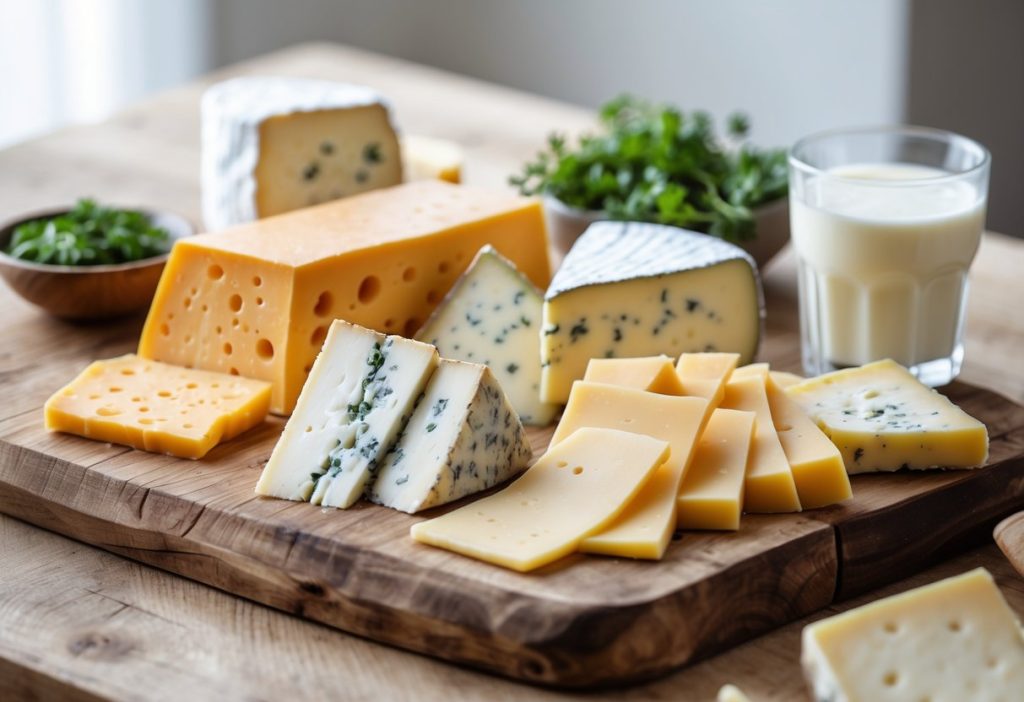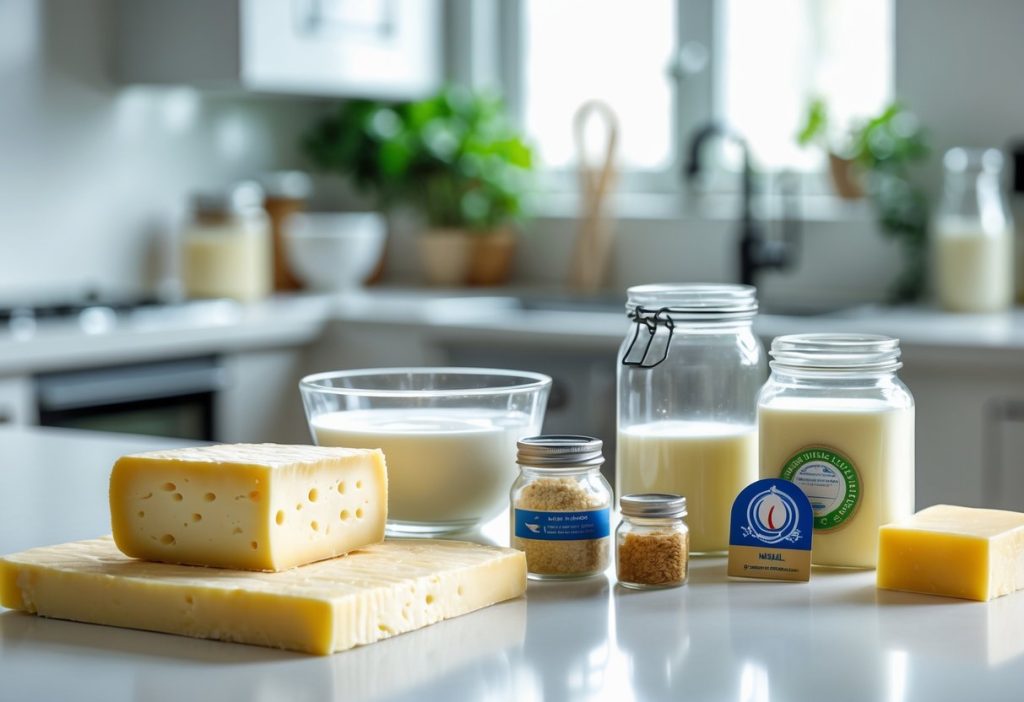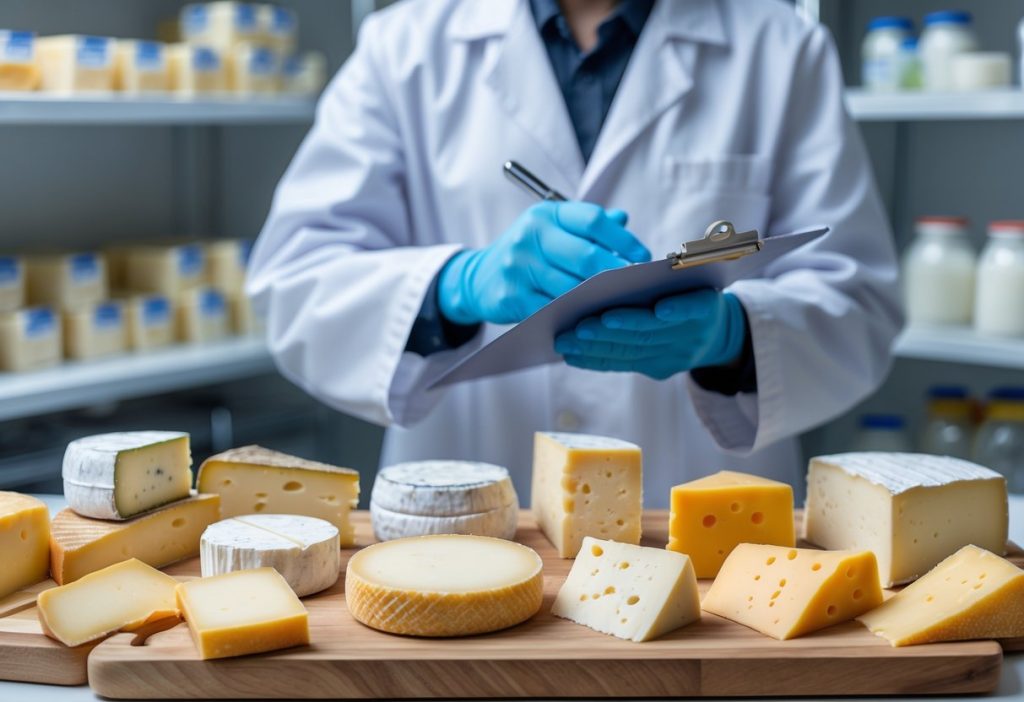Is Cheese Halal? Your Guide to Cheese’s Halal Status

The question of whether is cheese halal depends mainly on its ingredients, especially the type of rennet used in making it. Some rennet comes from animals that may not be slaughtered according to Islamic rules, which makes the cheese haram. Cheese made with microbial, vegetable, or genetically engineered rennet is generally considered halal.
Other factors like additives, preservatives, and flavorings can also affect the halal status of cheese. The safest way to be sure is to look for halal certification on the product. This guarantees that every ingredient and process meets Islamic dietary laws.
Many brands offer halal certified cheeses, and consumers can also check ingredient lists or contact manufacturers for clarity. Understanding these details helps Muslims enjoy cheese confidently without breaking dietary rules. For more details, visit cheesescientist.com for a thorough explanation about what makes cheese halal.
How Halal Status Is Determined for Cheese
The halal status of cheese depends mainly on the ingredients used and how they are processed. Key factors include the type of rennet used and whether any animals involved were slaughtered according to Islamic law. This helps determine if the cheese follows halal or haram guidelines.
Definition of Halal and Haram in Islamic Law
In Islamic law, halal means something is permissible or lawful, especially in food and drink. Foods classified as halal comply with dietary rules from the Quran and Hadith.
On the other hand, haram refers to what is forbidden. Foods containing pork, alcohol, or products from animals not slaughtered properly are usually haram.
The rules also require animal products to come from animals slaughtered according to zabiha, which means the animal’s throat is cut while invoking the name of Allah. Foods that do not meet these standards are considered non halal for Muslims.
Role of Rennet in Cheesemaking
Rennet is a key enzyme that helps milk turn into cheese by curdling it. The source of rennet is crucial for deciding if cheese is halal or haram.
- Animal rennet is taken from the stomach lining of young animals like calves.
- If the animal was not slaughtered by zabiha, this rennet and cheese become haram.
Other types include:
- Microbial rennet, produced by fermenting fungi or bacteria, which is halal.
- Vegetable rennet, taken from plants, also considered halal.
- Genetically engineered rennet, which mimics animal rennet but does not involve animal slaughter, is generally halal if no haram additives are used.
The rennet’s source directly affects halal status in cheesemaking.

Impact of Animal Slaughter Method (Zabiha)
The method of animal slaughter is essential for halal status. Zabiha requires the animal to be alive and healthy at the time of slaughter. The person must say Allah’s name while cutting the throat, ensuring blood drains properly.
If the rennet derives from animals not slaughtered by zabiha, all cheese made using that rennet is typically considered haram.
Checking for halal certification helps consumers verify if proper slaughter practices were followed during cheese production. Without this, the halal status of cheese with animal rennet remains uncertain.
The Enzymes and Ingredients That Affect Cheese’s Halal Status
The halal status of cheese depends mainly on the types of enzymes and ingredients used during its production. Certain enzymes and additives can make cheese non halal if they come from forbidden sources. Consumers must know what to look for on labels or check with producers to ensure products meet halal standards.
Animal Derived Rennet vs. Microbial and Vegetable Rennet
Animal derived rennet is extracted from the stomach lining of calves or other animals. If these animals are not slaughtered according to halal rules, the rennet is considered non halal. This type of rennet is common in traditional cheeses and poses the biggest concern for halal compliance.
Microbial rennet, produced from fungi or bacteria, is widely accepted as halal. It does not involve animals and is suitable for vegetarians and Muslims who follow halal dietary laws.
Vegetable rennet, derived from plants like thistle or fig leaves, is also halal. It is less common but found in some specialty cheeses. Cheese labeled with microbial rennet or plant based rennet is safer for halal consumers.
Fermentation Produced Chymosin and Microbial Enzymes
Fermentation produced chymosin (FPC) is an enzyme made using genetically modified microorganisms. It imitates animal rennet’s role in cheese making but avoids animal sources entirely. Because these enzymes are produced in controlled lab environments without animal contamination, they are generally recognized as halal.
Microbial enzymes cover a broad group of enzymes derived from bacteria, fungi, or yeast. These can replace animal rennet in many cheeses and maintain halal standards. Food manufacturers often use microbial enzymes in cheddar and processed cheeses to appeal to halal consumers.
Consumers should look for terms like fermentation produced chymosin or microbial enzymes on packaging to identify halal friendly options.
Whey, Additives, and Preservatives Impact
Whey, a byproduct of cheese, can affect halal status depending on its source. If whey is mixed with non halal ingredients or preservatives, it may not be halal. Additives like coloring agents, stabilizers, or flavor enhancers should also be free from animal derivatives unless certified halal.
Common preservatives such as sorbates, propionates, and natamycin are usually acceptable, provided they meet halal guidelines. It is important to verify all additives come from halal approved sources and are processed in line with halal practices.
Processed cheese may contain various additives. Checking labels for halal certification ensures these ingredients don’t compromise the cheese’s halal status.
Cross Contamination and Processing Considerations
During cheese production, cross contamination can occur if equipment is shared with non halal products. Manufacturers must follow strict halal control points to avoid this issue. Packaging materials, waxing agents, and aging environments should also follow halal standards.

Proper documentation and certification help verify that cheeses have been produced without contamination. Labels indicating halal certification and the use of microbial or vegetable enzymes offer consumers assurance.
Consumers need to be cautious with cheeses produced in factories that also handle haram products to avoid accidental consumption of non halal items.
Halal Cheese Types and Certification
Cheese must follow specific rules to be considered halal. The key issues involve the source of enzymes like rennet and other ingredients. Certification from trusted bodies ensures cheese meets these rules. Different types of halal cheese and brands are available, and some options also suit vegetarians.
What Makes Cheese Halal Certified
Halal certified cheese must be free from haram ingredients such as animal rennet from non halal slaughtered animals or alcohol based additives. The enzyme rennet is crucial since it curdles milk to form cheese. Rennet from animals not slaughtered according to Islamic law is haram.
Cheese made with microbial, vegetable, or genetically modified rennet is usually halal. A halal certification verifies that every part of production meets Islamic dietary laws. This includes checking ingredients, processing methods, and sanitation. Organizations like the Islamic Food and Nutrition Council of America (IFANCA) provide halal certification, giving Muslim consumers confidence about the product’s status.
Kosher Certification versus Halal Certification
Kosher and halal certifications share some similarities but are not the same. Both require specific slaughter methods and forbid certain ingredients. However, kosher certification focuses on Jewish dietary laws, while halal follows Islamic rules.
Some kosher certified cheeses may also be halal, especially if the rennet and other ingredients comply with halal requirements. However, halal consumers should not assume all kosher cheese is halal without confirmation. Halal certification confirms compliance with Islamic dietary law, especially for the source of rennet and additives.
Popular Halal Cheese Varieties and Brands
Several cheese types are commonly available as halal certified options. These include mozzarella, cheddar, ricotta, and processed cheese. Brands such as Kerrygold, Cheer Cheese, Almarai, and That’s Amore Cheese offer halal certified products.
These brands undergo strict reviews by halal bodies to ensure rennet and other ingredients meet halal rules. For example, some Tillamook cheeses use microbial rennet, making them halal certified. Availability varies by region, with many halal cheeses found in markets in the Middle East, Australia, Europe, and the US.
Vegetarian and Plant Based Cheese Options
Vegetarian cheese generally uses vegetable or microbial rennet instead of animal rennet. This makes many vegetarian cheeses halal friendly by default since they contain no haram animal products.
Plant based cheeses, often made from nuts, soy, or coconut milk, are naturally halal if free from alcohol or haram additives. They provide a safe alternative for Muslims and vegetarians alike. However, checking halal certification or ingredient lists remains important to avoid unexpected non halal ingredients. Several halal certified cheeses also label themselves as vegetarian, assuring compliance on both counts.
Halal Status of Popular Cheeses
The halal status of cheese depends mainly on the type of rennet used and the presence of any non halal additives. Different varieties vary based on their production methods, ingredients, and certifications. Understanding these details is crucial for selecting cheese that meets halal dietary rules.
Mozzarella Cheese
Mozzarella cheese, especially low moisture part skim mozzarella cheese, is often made using vegetable or microbial rennet, which is generally halal. Because rennet is the key factor in halal compliance, mozzarella made without animal rennet or with animal rennet from halal slaughtered animals is considered permissible.
Many mozzarella brands, including those used in pizza and fresh varieties, are available with halal certification. Consumers should check labels or contact manufacturers to confirm the source of rennet. Halal certified mozzarella is common in markets catering to Muslim consumers and is a safe option for those observing halal dietary laws.
Cheddar Cheese
Cheddar cheese’s halal status varies greatly depending on the rennet source. Traditional cheddar cheese may use animal rennet, which can be haram if the animal was not slaughtered according to Islamic law.

However, many producers, including Tillamook, offer cheddar cheese varieties made with microbial rennet and halal certification. These products are suitable for halal diets. Checking for halal certification or verifying the rennet source is essential when buying cheddar cheese to avoid haram ingredients.
Parmesan Cheese
Parmesan cheese often poses a challenge in halal compliance because it traditionally uses animal rennet from calves not slaughtered by halal methods.
Without halal certification or explicit information about rennet, most Parmesan cheese is not considered halal. Some producers may use microbial or vegetable rennet alternatives, but these are less common in Parmesan. Consumers must carefully review ingredient labels or rely on certified halal versions to ensure compliance.
Ricotta, Cream Cheese, and Other Varieties
Ricotta and cream cheese usually contain no rennet or use non animal rennet, making them easier to find in halal forms. These cheeses often use acid or microbial enzymes during production.
Other filtered or processed cheeses, including those from brands like Tillamook, may vary depending on additives or rennet type. Processed cheese spreads can include emulsifiers or preservatives from non halal sources. Muslims should prefer halal certified products or confirm ingredient details before purchase.
Conclusion
Understanding the halal status of cheese depends on key factors like the type of rennet used and ingredient sources. Certification, careful label checking, and knowledge of specific cheese types are important for confirming compliance with halal dietary laws.
